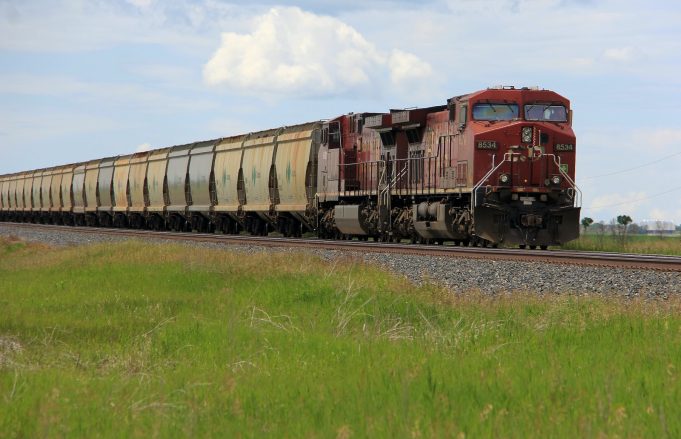- Western sanctions on Belarus’ potash industry have given Russian control over the essential commodity.
- Following the imposition of restrictions, Lithuania’s recent transit ban has forced Belarus to transfer its potash to the Russian port of Ust-Luga.
- The sanctions have hampered the global fertiliser market, feeding into the consumer price inflation that is gripping the West.
Situated on the Luga river, just 68 miles west of St. Petersburg, the port of Ust-Luga is a central part of Russia’s energy dominance.
The port, which is the final point of the Baltic Pipeline system, a key Russian oil pipeline, handles close to 100 million tonnes of cargo each year and is now diversifying into liquefied natural gas (LNG).
However, recent events mean that it will be Belarussian fertiliser, not fossil fuels, that has landed Ust-Luga in the media spotlight.
Indeed, as of last week, Lithuania’s ban of Belarussian potash from being transported across its territory to the port of Klaipeda means that Ust-Luga will become the new hub for Belarus’ exports.
While the ban has undoubtedly fallen flat, the diversion of Belarussian potash to Russia is just one of a litany of unintended consequences that the West has faced since it imposed sanctions on Belarus last summer.
The Lukashenko regime has been largely unaffected by the restrictions, with Russia gaining much from its estrangement from the West and with well-intentioned nations like Lithuania being the ultimate losers.
Regarding Lithuania, there’s no doubt that there will be significant soul-searching in Vilnius over the transit ban.
Reuters estimates that approximately 12.6 million tonnes of Belarussian potash are exported from Klaipeda each year, meaning its diversion to Russia will be a significant blow to the country’s economy.
For Russia, however, this is a development that Putin’s regime has thirsted after for a long time.
Media reports from last summer, for example, detailed how Dmitry Mazepin, a board member at Uralkali, Russia’s largest potash producer, and father to Formula 1 driver Nikita Mazepin, funded social media activity encouraging Western sanctions on Belarus.
Chairman of Uralkali Sergey Chemezov, a close ally of the Kremlin and Mazepin, now seemingly has the Belarussian potash industry in his grasp, a development enabled by the West.
This is ironic considering that Chemezov is on the US sanctions list himself, demonstrating the inconsistency, and indeed perversity, of the government’s current policy.
For the Putin regime, however, potash is just one element of a now vice-like grip on their smaller neighbour.
Russia provided generous economic and military support to the Lukashenko regime after it was sanctioned by the US and its allies, and in return, Russian troops are now using Belarus as a base of operations.
The country’s southern border is seen to provide the perfect launch point for an offensive on Kiev, Ukraine’s capital – an offensive that the West will try to stop with the threat of sanctions on Russia, in other words, the same policy that handed Belarus to Putin in the first place.
As such, the current grim situation is clearly not what the West intended when it imposed sanctions on Belarus last year.
Instead, the US and its allies thought that by undermining his economy, they could bring Lukashenko to his knees and deliver regime change to the Belarussian people.
Their reasoning, well-intentioned as it was, has now been debunked.
The Belarussian economy is stable if not spectacular and Russia has provided loans, infrastructure, and a willing market to Belarus, in return for an alarming degree of control.
Putin wants to reunite the former-Soviet family of nations and he sees Belarus as just another brick in the wall, rather than the autonomous nation state that Belarussians value so much.
The cost to Belarus of isolation has been high, while Lukashenko is still firmly in place, backing up Putin is his tormenting of Ukraine and even chipping into the destabilisation of the EU by busing migrants to its Eastern border.
Moreover, and as reported by the Wall Street Journal, sanctions have led to a global fertiliser shortage which is feeding rampant consumer price inflation in basic foodstuffs across the West.
American farmers, perhaps not having formerly realised their dependence on tiny Belarus, are calling for an immediate change in approach and consumers will no doubt punish politicians who oversee a decline in their living standards.
Fortunately for Western leaders, while economic measures have got them into this mess, economic incentives can get them out.
The Lukashenko regime, prior to its estrangement, enjoyed pivoting between East and West, with its industries having access to both European and American markets, and Russia and China’s too.
While the Belarussian economy can survive by relying on the latter, the Lukashenko regime, and the country’s citizens for that matter, will be better off serving both.
Western leaders may be fearful of a climb down from their aggressive policy towards Belarus, but an increasingly unstable economic environment will give them ample cover.
As such, the withdrawal of sanctions in return for democratic reforms in Belarus means stability for the West and renewed prosperity for ordinary Belarussians – a good deal for both sides.
Source










